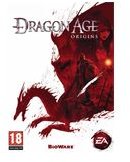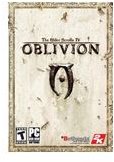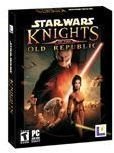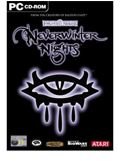PC Role-Playing Games for Beginners: Character Creation and More

The Role-Playing Game (RPG)
Of the many PC game genres, the role-playing game (RPG) is definitely the most complex. For those used to shooters or simple strategy games, PC RPG games can seem confusing. But that’s why these games are so rewarding—because of their complexity and depth. They offer a level of choice you’ll find in no other genre, allowing you to take the gaming experience to the next level. Every RPG is different, but there are certain characteristics that define this type of game. So if you’re looking to dip your toes into the vast role-playing universe, here are some of the common features you’ll encounter.
One thing to keep in mind when exploring this genre is that RPG PC games generally have a pretty big learning curve. It takes a while to figure out what you can do and how to do it, much less where to go to complete your first quests. And often the beginning is rough—you’ll die a few times and often have a difficult time finding enough money and/or the right items. But sooner or later things will even out and you’ll find yourself moving through the game world with ease.
So don’t get frustrated, and be prepared. Keep the manual close by, because you’re sure to need it as a reference. You might even want to read through the manual before you start to play, especially the sections pertinent to character creation. The more you know before you start, the less likely you are to handicap yourself by making less than optimal choices. And speaking of character creation…
Character Creation
In many game genres, you start out with a pre-determined character and have little choice over what that character can do. Not so in an RPG. In fact, the ability to create your own character is a defining characteristic of the genre. You’ll have several choices, often including gender, race, and class, and every one of these choices has an effect on the overall game.
In particular, your class will determine what you can do and what skills you can learn (or at least what you learn most quickly). Many games have only the standard three classes—fighter, magic user, and scout/rouge—but others expand on those categories to offer choices like barbarian, paladin, ranger, and sorcerer. And that’s only the fantasy RPGs, since futuristic games offer more high-tech and sci-fi oriented options. In some cases you can learn any skill in the game despite your class, but it is the class skills that determine what your character is best at. In other cases, like in the recent release Dragon Age: Origins, you are forbidden from learning certain abilities outside the boundaries of your class.
So you have to learn to choose wisely. Character creation is the first thing you’ll do in a new RPG, and the most important because it sets the tone for the rest of the game. Spend some time looking over your options (the more options, the more time you’ll need) and construct a character you’ll enjoy playing and who will be able to handle a range of challenges.
Leveling Characters

This goes hand-in-hand with character creation, and is another of the PC RPG’s game’s essential features. In every RPG your character will level up throughout the game as he or she gains experience. If it’s a party-based game, your party members will also level up. And each time you gain a level, you’ll have a whole new set of choices to make. For example, you might have to choose which attributes (strength, intelligence, etc.) to put points in, which skills or spells to learn, and what proficiencies to improve.
It’s best not to just click through the leveling screen quickly, but to pay as much attention to leveling as you did to character creation. Level up the wrong skills and attributes, and you’ll quickly find yourself in trouble, ill prepared to handle increasingly difficult challenges. This is particularly crucial in games like Oblivion where enemies level up at the same rate you do. If you don’t level up with care, you’ll quickly fall behind.
You have a choice, when leveling, between two basic routes. You can try to become proficient in everything—a jack-of-all-trades—or you can specialize narrowly in your chosen class and skill set. Each route has its advantages. A well-rounded character has more options to draw on when trying to handle the many different challenges you’ll encounter, but sacrifices a certain level of effectiveness. The specialized character can’t do as many things, but it does a few things really well. Both can work; it depends on your preference and on the game you’re playing. As a general rule, the more leveling options there are the harder it is to create an effective well-rounded character.
Making Choices

Now, not every RPG is well designed to take advantage of its genre. Some are very straightforward and feel more like simple action-adventure games. But the really good ones are those that offer you lots of choices throughout the game—choices that actually affect the game world.
The possibilities are endless. Often there are multiple dialogue options, letting you choose what to say to other characters and shaping their reactions to you. Sometimes you’re allowed to make decisions about how to complete a quest, with multiple options such as persuading a stubborn character vs. killing him. And sometimes the choices are morally weighted: your characters’ actions unlock certain good/evil abilities and effect the way other characters treat you. Two such games are Knights of the Old Republic (KOTOR) and Fable, both of which allow you to mold your character into a hero or a villain.
And often there’s a lot of leeway in how you go about playing the game. You aren’t constrained to a series of missions you must complete in exactly the right order. Instead, you may have multiple quests active at once with the freedom to complete them in any order you like. There is always a mandatory main quest, but you’ll also come across sidequests that you can accept or decline, or areas full of enemies and loot that you can play through but aren’t part of a particular mission or quest. In some games, you’ll encounter NPCs who’d love to tag along, and you can decide whether to let them join you or not.
There’s a huge range in how much freedom an RPG will allow—from games like Dungeon Siege that are very straightforward to games like Morrowind that offer a huge world where you can stumble into just about anything at any time. As a rule, though, the better games are usually those that offer the most choices. Those are the games that feel the most personalized, that invite you to really participate instead of just playing along.
The PC RPG

While nowadays many RPG games are released on consoles, the genre was designed for the computer. For one, often the mechanics of these games work better on a PC—the console versions are typically somewhat simplified. Also, on a PC it’s a whole lot easier to download and install patches, which are available on the game’s website and fix various bugs. And a keyboard and mouse make it far simpler to deal with the wide range of gameplay options available than trying to play with a console controller.
But the main reason to play RPGs on the computer is that this platform allows you to customize the game even further. Often fans of a game will create content you can download off the Internet, called mods, which add features and quests and characters to the game. Recently game developers themselves have gotten into the action, offering downloadable content on their websites for little or no extra cost. Some mods are better than others, but a little experimentation goes a long way towards making the game experience even more immersive. Sometimes it’s possible to get these mods on a console, but most of the time it’s not.
In addition, quite a few RPG PC games offer a multiplayer option. Games like Neverwinter Nights and Diablo can be played online, adding a whole new dimension and level of challenge. You’ll have to take a different approach to character creation and leveling, making sure you and your party members specialize in different skills so you can handle the tougher multiplayer quests. And from here, of course, you’re only a step away from the hugely popular mmorpgs (massively multiplayer online RPGs) like World of Warcraft, Aion, and Lord of the Rings Online.
The Beginning…
Of course, this only touches on the many features that make PC RPG games such a unique experience. Another highlight is plot—often RPGs are story-driven games with creative narratives that pull you in and offer a surprisingly thoughtful experience. Combat can also be especially interesting, since in few other genres do you have so many options and (sometimes) party members to complicate the battles.
But the best way to really understand this genre is to experience it for yourself. Once you’ve played a few, you’re bound to get hooked on the way these games let you live out unique and exciting adventures through your highly customized avatar. To get you started, here are a few of the most popular PC RPGs of all time. This list serves as a great introduction to the genre at its best. And if you’re new to PC gaming in general, check out our guides to the first-person shooter, strategy, and action adventure genres as well.
Now if you’ll excuse me, I’ve got to get back to my game. That’s right, I forgot to tell you one last thing—the RPG is probably the most addictive type of game ever created. Don’t forget to budget plenty of time in your schedule when you start a new one. Because you might find yourself still playing days later with no idea where all that time went. Just a friendly warning, from gamer to gamer.
